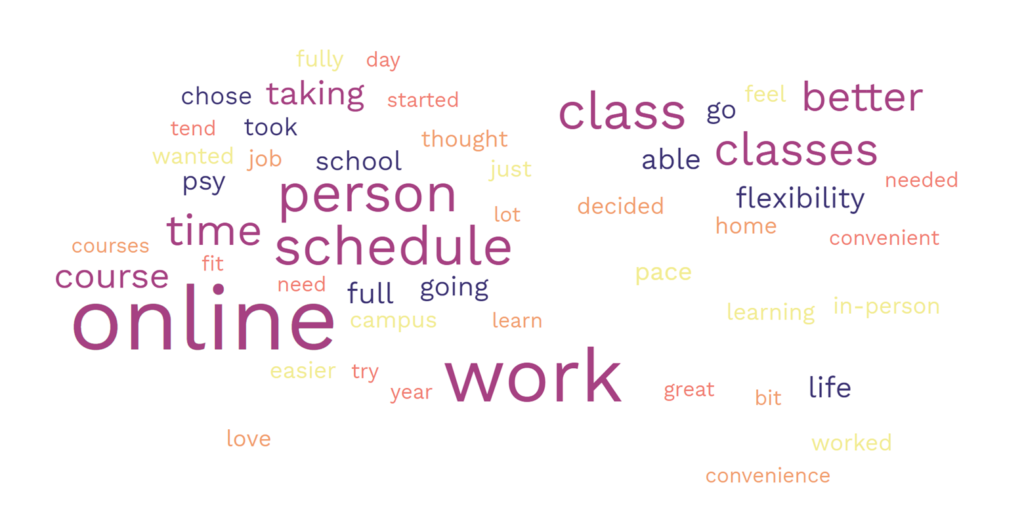by Mary Anne Duggan
According to Maricopa Fast Facts, in fall 2022 69% of GCC students attended school part-time. In addition, ever since the onset of COVID, students are opting for online courses in greater numbers. The masks may be down and freedom to roam the school halls restored, but the online, part-time student population only seems to be growing in droves.
We are a community college because we serve the community. But, we also build community in our classrooms, student organizations, sports teams, and special events. Community building becomes decidedly more difficult when our students only have one toe dipped into school life.
I have been thinking a lot about why my online courses fill up much faster than my in-person courses. As part of an anonymous mid-term survey I gave to my statistics students this semester, I asked students to “Briefly explain why you decided to take PSY 230/231 fully online as opposed to in-person.”
Two major qualitative themes emerged to the question of why online: 1) scheduling/logistical and 2) preference for online learning. Scheduling/logistical reasons dominated (71% of all responses) and had the following sub-themes:
- Convenience
- Flexibility
- Work demands
- Avoid commute
- Scheduling needs
- Participation in sports
- Parenting/homelife responsibilities
Preference for online learning had the following sub-themes:
- Do well in online classes
- Like online better
- Anxiety/avoidance of being in-person
- Ability to go at own pace
- Perceive in-person courses as harder
What was interesting (but not at all surprising) is that, when broken down by age (18-21 vs. 22+ or “traditional” vs. “non-traditional” ages), scheduling/logistical was mentioned by the 22+ set more often (81% of their responses) than in the 18–21-year-olds (62% of their responses). Of course, this survey of my classroom students is not generalizable to all college students or even students at GCC. But, it helps me to know a little more about what motivated my students to choose an online class, especially a class that is typically perceived as highly rigorous.
The reasons my students gave for selecting online courses over those taught in-person indicate the strong pull of this learning platform that isn’t going away any time soon (or ever). The continuing challenge for educators is to find new ways to foster a sense of belonging for part-time and online students.
And yet, there is another “community” to which our students belong – their immediate and extended families. Yes, my student who is a father in his 30’s might not attend a basketball game on campus, but he shares his online work with his 10-year-old son who wants to know about “all those funny numbers on the screen.” Or there’s the mom of a two-year-old who laughs as her child climbs all over her while we video conference. There’s the dad who I just know is sitting off camera as his son participates in a Zoom class, poised to offer tutoring after sign-off. College simply looks different for some of our students, but the motivating factor of community can be present in many forms.

